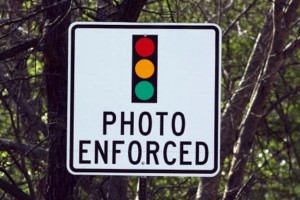With more and more American communities flashing a red light at ticket cameras, the National Motorists Association is offering a $10,000 challenge to prove there are better ways to control traffic at problematic intersections.
The NMA has launched the $10,000 Ticket Camera Challenge to prove that engineering solutions, rather than automated enforcement, can do a better job of dealing with red light runners.
The effort underscores a growing wave of opposition to ticket cameras around the country, many states and communities either barring or pulling down the devices – which often haven’t delivered on the promise to control traffic while also improving revenues.
“Voters consistently reject camera measures because they are suspicious of safety claims made by public officials and the camera companies,” said Gary Biller, Executive Director of the NMA. “To put cities to the test, we have issued the $10,000 Ticket Camera Challenge.”
The organization says it will pay $10,000 – to be used for any safety or traffic program – to any community using red light cameras at an intersection with a high rate of violators if engineering solutions can’t reduce the number of violations by 50%. If the recommendations work the community must duplicate the measures at other troublesome intersections and scrap its ticket camera program.
There are three primary steps the NMA is recommending:
- Longer yellow lights;
- More visible traffic markings;
- Momentary all-red lights, so there is less chance of a collision if a motorist misjudges the timing of a yellow light.
The Ticket Camera Challenge seems to be catching the shifting mood of the American public. While there may be frustration with red light runners there appears to be little support for automated cameras, which snap pictures of alleged violators who are then mailed notices that can include fines of as much as $500.
“Red-light cameras are a for-profit proposition for the cities and camera companies, one that depends on an ongoing, steady stream of photo citations,” said NMA’s Biller.
The executive director noted that voters have rejected ticket cameras in 22 of 23 cities where the issue has been put to referendum in recent years, including Houston, Albuquerque and Cincinnati. Just this past month they’ve been rejected in seven cities, three each in Washington State and Ohio.
Traffic enforcement cameras have, in more than a few cases, proved less profitable – or effective – than originally promised. Arizona scrapped its program last year after revenues lagged projections. It turned out that the rules provided motorists a way out of paying for citations – as has happened in Los Angeles, where drivers can simply ignore the $500 tickets without penalty.

